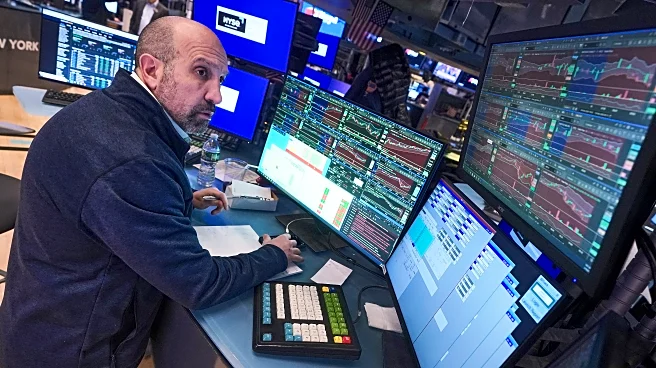What's Happening?
Intel has announced an amendment to its Chips Act funding agreement with the US Department of Commerce, allowing the company to receive $5.7 billion in cash earlier than initially planned. This amendment removes certain project milestones, providing Intel with greater flexibility in utilizing the funds. The revised agreement maintains restrictions preventing Intel from using the funds for dividends, buybacks, or expanding operations in specific countries. As part of the deal, Intel has issued 274.6 million shares to the US government and has set aside 158.7 million shares in escrow, contingent upon further CHIPS funds being allocated for the Secure Enclave program. This program aims to enhance advanced chip manufacturing capabilities.
Why It's Important?
The US government's decision to take a 9.9 percent equity stake in Intel raises significant questions about the future of corporate America, particularly in the technology sector. This move, coupled with President Trump's indication of pursuing similar deals, suggests a shift towards increased government involvement in private enterprises. The $8.9 billion investment, alongside previous grants totaling $11.1 billion, underscores the strategic importance of bolstering domestic chip manufacturing. This could have far-reaching implications for the US economy, potentially enhancing competitiveness in the global semiconductor market and reducing reliance on foreign chip suppliers.
What's Next?
Intel's finance chief, David Zinsner, has indicated that the government stake serves as an incentive for Intel to maintain control over its contract manufacturing business. As the Secure Enclave program progresses, further CHIPS funds may be released, potentially accelerating advancements in chip manufacturing. Stakeholders, including industry leaders and policymakers, will likely monitor the impact of this government involvement on Intel's operations and the broader semiconductor industry. Future deals similar to this one could reshape the landscape of corporate governance and government-private sector collaboration.











